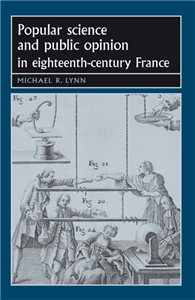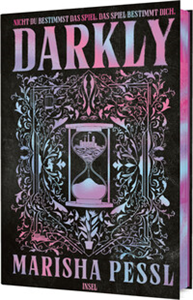Your Search Results
-
Kathrin Dreusicke Books
Als Kind bereits wünschte ich mir, das Leiden durch Krankheiten mit natürlichen Produkten lindern oder sogar heilen zu können.Nach extremer jahrelanger weltweiter Recherche über verschiedene Heilmethoden bemerkte ich ein Detail: eine stark heilende Wirkung hat das Sonnenhormon Vitamin D dicht gefolgt von anderen Nährstoffen.Mein Wissen habe ich in der Folge eingesetzt für Freunde und Verwandte: mit einem unglaublichen Erfolg. Durch eine konstante und gezielte Behandlung mit Vitaminen und Mineralstoffen wurden alle Behandelten gesund ohne extra Medikamente zu benötigen.
View Rights Portal
-
Promoted Content
-
Promoted ContentHumanities & Social SciencesAugust 2011
Love, Intimacy and Power
by Katie Barclay, Pamela Sharpe, Penny Summerfield, Lynn Abrams, Cordelia Beattie
-
 Trusted Partner
Trusted Partner
-
 Trusted Partner
Trusted Partner
Inquiry Based Stress Reduction (IBSR) in Practice - How to Use “the Work” of Byron Katie in Psychotherapy and Coaching.
Manual for Clinical Practice
by Marie Odiel van Rhijn, Esther Leuning
Inquiry Based Stress Reduction is the name of the method which was developed by Byron Katie as ‘the Work’. Byron Katie is the author of very well-known self-help books. However, until now there was no manual available which explains the application of this method and the methodological and scientific evidence which can be given to support it. This book provides a comprehensive and exhaustive overview of how the method can be used by therapists in psychotherapeutic settings in mental health care, business coaches and coaches in other fields of life. As well as providing an extremely precise description of the working method for each step of the protocol, all these steps are clarified by means of practical examples and case studies. Target Group: psychologists, therapists and coaches.
-
 Trusted Partner
European historyOctober 2013
Trusted Partner
European historyOctober 2013Popular science and public opinion in eighteenth-century France
by Michael R. Lynn
Now available in paperback, Michael R. Lynn's book analyses the popularisation of science in Enlightenment France. He examines the content of popular science, the methods of dissemination, the status of the popularisers and the audience, and the settings for dissemination and appropriation. Lynn introduces individuals like Jean-Antoine Nollet, who made a career out of applying electric shocks to people, and Perrin, who used his talented dog to lure customers to his physics show. He also examines scientifically oriented clubs like Jean-François Pilâtre de Rozier's Musée de Monsieur which provided locations for people interested in science. Phenomena such as divining rods, used to find water and ores as well as to solve crimes; and balloons, the most spectacular of all types of popular science, demonstrate how people made use of their new knowledge. Lynn's study provides a clearer understanding of the role played by science in the Republic of Letters and the participation of the general population in the formation of public opinion on scientific matters.
-
 Trusted Partner
Trusted Partner
-
 Trusted Partner
Humanities & Social SciencesNovember 2005
Trusted Partner
Humanities & Social SciencesNovember 2005Myth and materiality in a woman’s world
by Lynn Abrams, Pamela Sharpe, Penny Summerfield, Lynn Abrams, Cordelia Beattie
-
 Trusted Partner
Humanities & Social SciencesFebruary 2018
Trusted Partner
Humanities & Social SciencesFebruary 2018Popular science and public opinion in eighteenth-century France
by Michael Lynn, Joseph Bergin, Penny Roberts, Bill Naphy
In this book, Michael R. Lynn analyses the popularisation of science in Enlightenment France. He examines the content of popular science, the methods of dissemination, the status of the popularisers and the audience, and the settings for dissemination and appropriation. Lynn introduces individuals like Jean-Antoine Nollet, who made a career out of applying electric shocks to people, and Perrin, who used his talented dog to lure customers to his physics show. He also examines scientifically oriented clubs like Jean-François Pilâtre de Rozier's Musée de Monsieur which provided locations for people interested in science. Phenomena such as divining rods, used to find water and ores as well as to solve crimes; and balloons, the most spectacular of all types of popular science, demonstrate how people made use of their new knowledge. Lynn's study provides a clearer understanding of the role played by science in the Republic of Letters and the participation of the general population in the formation of public opinion on scientific matters.
-
 Trusted Partner
Trusted Partner
-
 Trusted Partner
Trusted Partner
-
 Trusted Partner
Trusted Partner
-
 Trusted Partner
Humanities & Social SciencesOctober 2021
Trusted Partner
Humanities & Social SciencesOctober 2021Women, workplace protest and political identity in England, 1968–85
by Jonathan Moss, Lynn Abrams
-
 Trusted Partner
The ArtsFebruary 2019
Trusted Partner
The ArtsFebruary 2019Bertrand Tavernier
by Lynn Anthony Higgins
Bertrand Tavernier is widely recognized as the leading French filmmaker of his generation. Both a consummate artist and a controversial public figure, he is a passionate advocate for social causes and also a tireless defender of world cinema in general and the French cinematic heritage in particular. Lynn Higgins' book offers a guided tour through Tavernier's oeuvre, taking into account both its prodigious diversity and its unifying themes. It explores his use of genre and adaptation, his work with actors and his affection for characters, his treatment of France's colonial history, his explorations of the powers of art and the complexities of intergenerational relations, both among fictional characters and within French cinema history. This is the most comprehensive and up-to-date scholarly book about Tavernier. Original and lively, sophisticated and engaging, the book will appeal to anyone interested in film studies, gender studies, and French cultural studies including academics, students, cinema enthusiasts, and Tavernier fans.
-
 Trusted Partner
Humanities & Social SciencesFebruary 2022
Trusted Partner
Humanities & Social SciencesFebruary 2022Women art workers and the Arts and Crafts movement
by Zoë Thomas, Lynn Abrams
-
 Trusted Partner
Trusted Partner
-
 Trusted Partner
Humanities & Social SciencesNovember 2005
Trusted Partner
Humanities & Social SciencesNovember 2005Myth and materiality in a woman’s world
by Lynn Abrams, Pamela Sharpe, Penny Summerfield, Lynn Abrams, Cordelia Beattie, Rebecca Mortimer
-
 Trusted Partner
Trusted Partner
-
 Trusted Partner
The ArtsDecember 2011
Trusted Partner
The ArtsDecember 2011Bertrand Tavernier
by Lynn Anthony Higgins, Diana Holmes, Robert Ingram
Bertrand Tavernier is widely recognized as the leading French filmmaker of his generation. Both a consummate artist and a controversial public figure, he is a passionate advocate for social causes and also a tireless defender of world cinema in general and the French cinematic heritage in particular. Lynn Higgins' book offers a guided tour through Tavernier's oeuvre, taking into account both its prodigious diversity and its unifying themes. It explores his use of genre and adaptation, his work with actors and his affection for characters, his treatment of France's colonial history, his explorations of the powers of art and the complexities of intergenerational relations, both among fictional characters and within French cinema history. This is the most comprehensive and up-to-date scholarly book about Tavernier. Original and lively, sophisticated and engaging, the book will appeal to anyone interested in film studies, gender studies, and French cultural studies including academics, students, cinema enthusiasts, and Tavernier fans. ;
-
 Trusted Partner
Humanities & Social SciencesSeptember 2017
Trusted Partner
Humanities & Social SciencesSeptember 2017Gender and housing in Soviet Russia
Private life in a public space
by Pamela Sharpe, Lynne Attwood, Penny Summerfield, Lynn Abrams, Cordelia Beattie
This book explores the housing problem throughout the 70 years of Soviet history, looking at changing political ideology on appropriate forms of housing under socialism, successive government policies on housing, and the meaning and experience of 'home' for Soviet citizens. Attwood examines the use of housing to alter gender relations, and the ways in which domestic space was differentially experienced by men and women. Much of Attwood's material comes from Soviet magazines and journals, which enables her to demonstrate how official ideas on housing and daily life changed during the course of the Soviet era, and were propagandised to the population. Through a series of in-depth interviews, she also draws on the memories of people with direct experience of Soviet housing and domestic life. Attwood has produced not just a history of housing, but a social history of daily life which will appeal both to scholars and those with a general interest in Soviet history.
-
 Trusted Partner
March 2026
Trusted Partner
March 2026Darkly
Nicht du bestimmst das Spiel. Das Spiel bestimmt dich | Psychothriller für junge Erwachsene über das dunkle Erbe eines berüchtigten Spieledesigners
by Marisha Pessl, Katrin Segerer, Jennifer Michalski
Wofür würdest du töten? Diese Frage muss die siebzehnjährige Dia beantworten, um einen begehrten Praktikumsplatz bei der Louisiana Veda Foundation in London zu gewinnen. Dia ist seit Jahren besessen von der legendären Veda, deren ebenso geniale wie furchteinflößende Darkly-Spiele Kultstatus erreicht haben. Die wenigen Werke, die nach Vedas mysteriösem Tod erhalten blieben, werden für mehrere Millionen Dollar gehandelt. Unter Tausenden Bewerbern aus aller Welt werden Dia und sechs andere Jugendliche als Praktikanten ausgewählt. Doch gleich nach der Ankunft in London werden sie auf eine abgelegene Insel gebracht – das Herzstück von Vedas Spiele-Imperium. Dort finden sie sich in einem Darkly-Spiel auf Leben und Tod wieder. Wer führt die Fäden in diesem Netz? Dia weiß nicht, wem sie noch trauen kann. Ein Labyrinth voller verborgener Hinweise, ein dunkles Vermächtnis und ein Geheimnis in Dias Vergangenheit – ein fesselnder Thriller voller überraschender Twists.


























